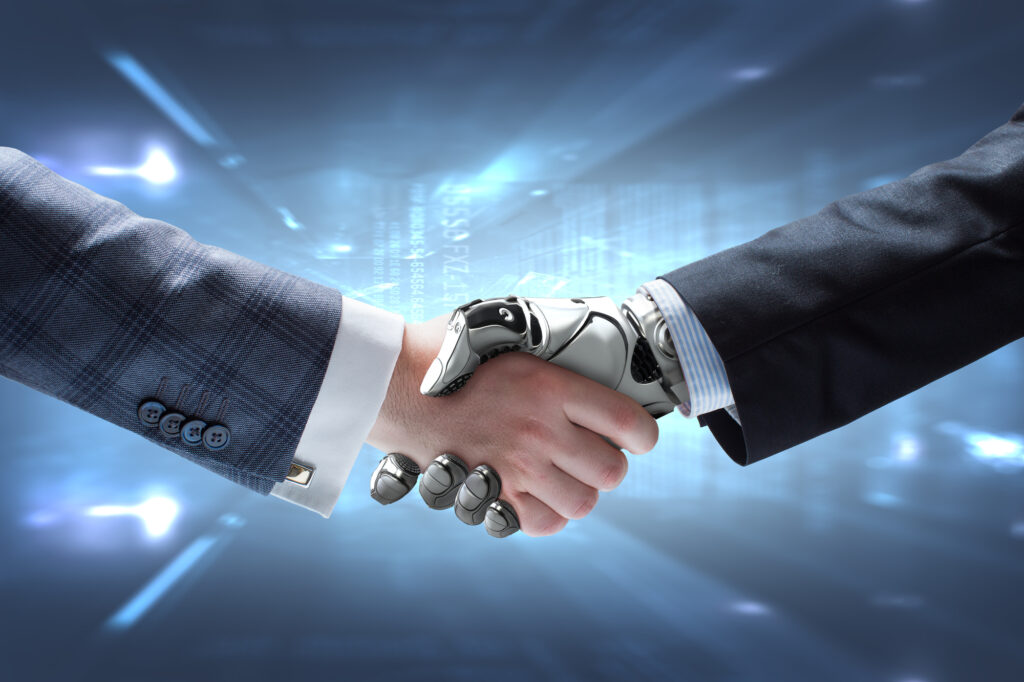The evolution of supply chain management is intrinsically linked to advancements in technology. As the industry embraces automation, artificial intelligence (AI), and robotics, a new paradigm is emerging: human-robot collaboration. This shift is redefining the roles of human workers and robots within the supply chain, unlocking unprecedented levels of efficiency, productivity, and innovation. This article delves into the exciting landscape of the future supply chain workforce, exploring the dynamics of human-robot collaboration, its benefits, challenges, and the potential it holds for reshaping the future of business operations.
The integration of robots into the supply chain is not a new concept. However, the future is marked by a profound transformation—a shift from replacing human workers to collaborating with them. This transformation is driven by advancements in robotics, AI, and a growing recognition of the unique strengths that humans and robots bring to the table.
Benefits of Human-Robot Collaboration
- Enhanced Efficiency: Robots excel in repetitive and labor-intensive tasks, while humans possess cognitive skills, creativity, and problem-solving abilities. By collaborating, supply chain operations can achieve higher levels of efficiency and productivity.
- Improved Safety: Robots can handle hazardous tasks, reducing the risk of injuries to human workers and creating a safer work environment.
- 24/7 Operations: Robots can work around the clock without fatigue, enabling continuous production and distribution processes.
- Data-Driven Decision Making: Robots generate vast amounts of data that can be analyzed to optimize processes, leading to data-driven decision-making for both humans and machines.
- Innovation and Customization: Collaborative efforts lead to the development of innovative solutions and the ability to offer customized products and services.
Challenges and Considerations
- Skill Development: Human workers need to acquire new skills to work effectively alongside robots. Training and upskilling become crucial to ensure a smooth transition.
- Change Management: Organizations must manage the cultural shift and address potential resistance to change among the workforce.
- Ethical and Social Implications: Ethical considerations related to job displacement and the ethical treatment of robots in the workforce must be addressed.
Real-World Applications of Human-Robot Collaboration
- Warehousing and Logistics: Robots assist in tasks such as picking and packing, while humans focus on tasks that require decision-making and strategic thinking.
- Manufacturing: Collaborative robots, or cobots, work alongside human workers to assemble products, improving precision and efficiency.
- Last-Mile Delivery: Drones and autonomous vehicles collaborate with human drivers to expedite delivery and optimize routes.
- Data Analysis: Robots process vast amounts of data, providing insights that enable humans to make informed decisions for supply chain optimization.
Preparing for the Future
- Skill Development: Invest in training and upskilling programs to equip human workers with the skills needed to collaborate effectively with robots.
- Flexible Workflows: Design flexible workflows that enable seamless integration between humans and robots, optimizing each entity’s strengths.
- Ethical Guidelines: Establish ethical guidelines and protocols for human-robot collaboration to ensure fair treatment and a harmonious work environment.
The future of the supply chain workforce is characterized by a dynamic interplay between humans and robots—each contributing their unique strengths to achieve unprecedented levels of efficiency, innovation, and productivity. By embracing human-robot collaboration and proactively addressing challenges, organizations can position themselves at the forefront of supply chain excellence, driving the industry forward into a new era of interconnected and harmonious work processes.
The Perfect Planner Team is here if you have any questions about The Future of Supply Chain Workforce, and we offer a free consultation service. If you would like to connect with us on this article or any other topic, please message us on LinkedIn, shoot us an email at info@perfectplanner.io, visit our website at www.perfectplanner.io, or give us a call at 423.458.2979.
Author: Thomas Beil
Publication Date: September 6, 2024
© Copyright 2024 Perfect Planner LLC. All rights reserved.






